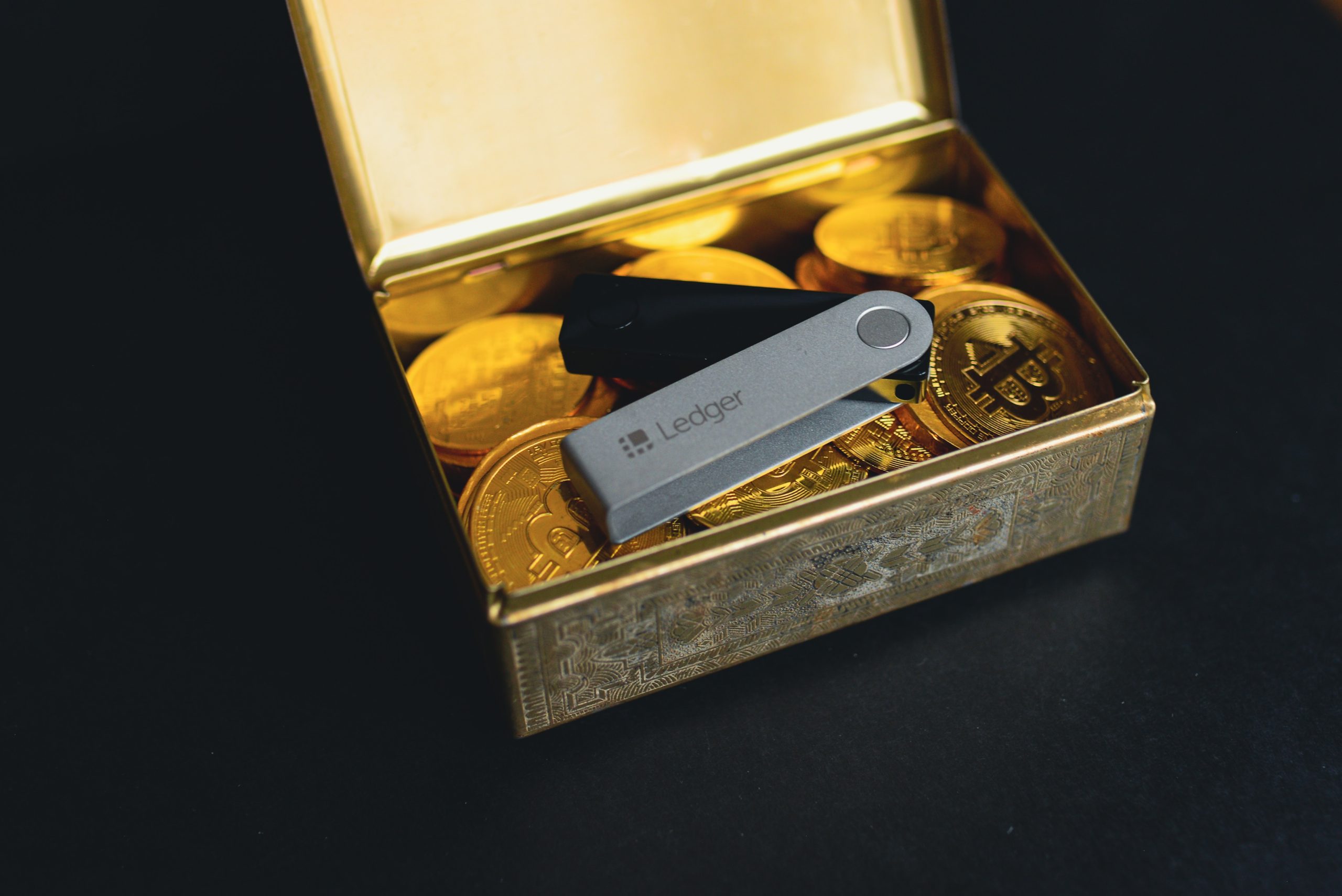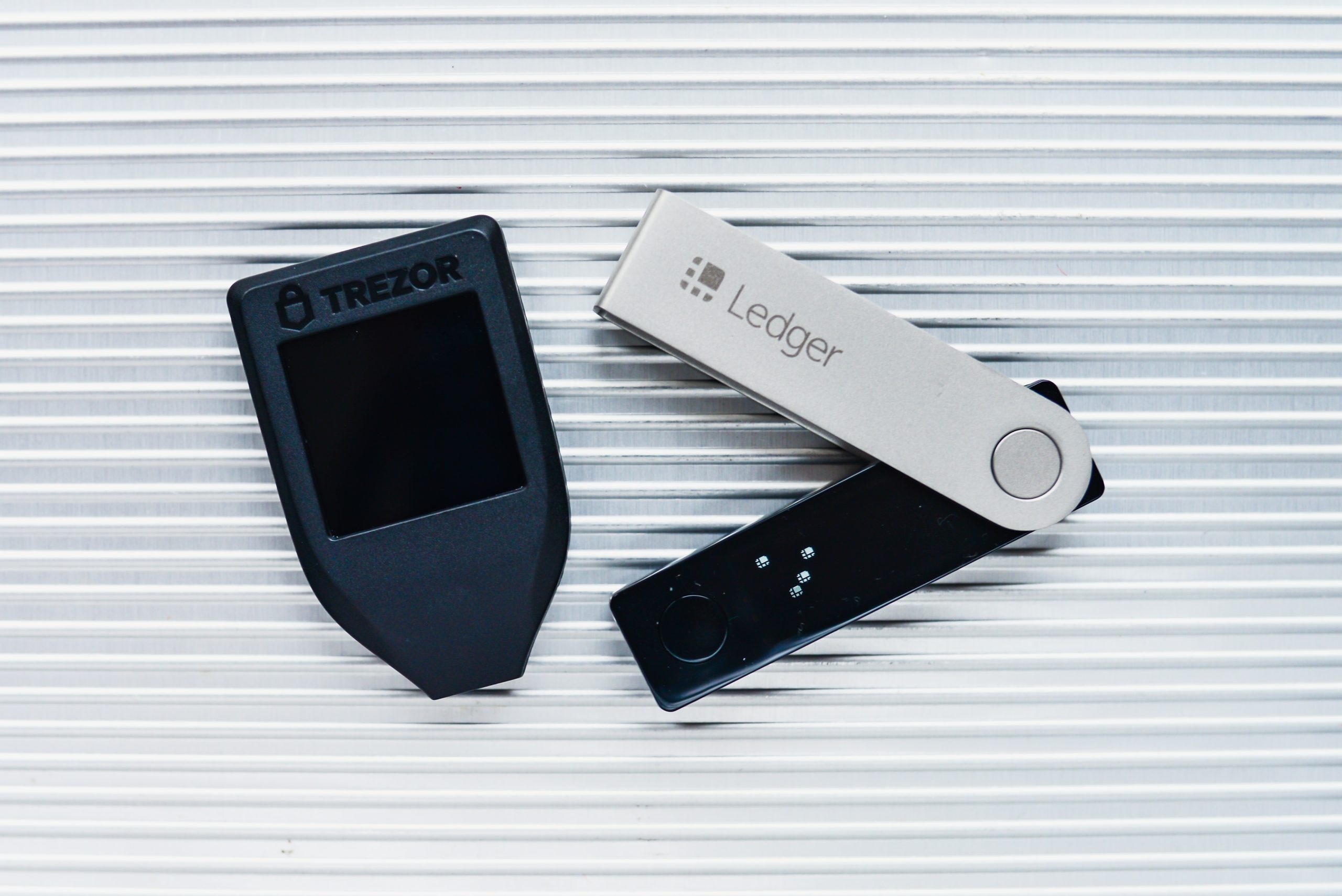Cryptocurrency is a revolutionary form of digital asset and money, offering unprecedented levels of security, speed and convenience in how we store and exchange value. To protect your assets from theft, hackers, or loss, the best way to store your crypto is with a hardware wallet. A hardware wallet is a physical device that stores your private keys offline, making it virtually impossible for them to be accessed by anyone else.
Crypto Hardware Wallets
There are several hardware wallets available in the market that can keep your digital assets safe and secure. The best crypto hardware wallets come with advanced security features and offer users ease of use. One such device is the Ledger Nano S, which supports over 1,100 cryptocurrencies and offers a 2-factor authentication process to secure transactions.
Another excellent option is Trezor Model T, which comes with a full-color touch screen display and offers seamless integration with popular cryptocurrency wallets like MyEtherWallet and Electrum. This wallet has been designed to protect against physical attacks using tamper-evident packaging.
Finally, KeepKey is another popular hardware wallet that offers an intuitive user interface, robust security features like PIN protection for added security. Its large OLED screen displays essential transaction details before signing off on any transfer or payment requests. Ultimately, selecting the right hardware wallet depends on your needs as an investor or trader – so do your research!

Security of Hardware Wallets
Hardware wallets are considered the safest way to store cryptocurrencies. However, their security depends on various factors. The two most important aspects of safeguarding a hardware wallet are seed phrases and physical storage. Seed phrases are typically 12-24 random words that act as a backup for restoring access to your wallet in case it’s lost or damaged. It is essential to keep your seed phrase safe and secure; otherwise, anyone who has it can access your funds.
Physical storage of hardware wallets plays an equally crucial role in securing them. Users should avoid leaving their wallets unattended, especially in public places such as cafes or airports. In addition, creating backups and storing them in multiple locations like fireproof safes or safety deposit boxes can prevent loss due to natural disasters.
Moreover, users need to ensure that they purchase hardware wallets from reputable manufacturers only since counterfeit devices with pre-installed malware exist in the market. In summary, taking adequate precautions while using hardware wallets can significantly reduce the chances of theft and hacking attempts by malicious actors.

Types of Crypto Hardware Wallets
There are several types of crypto hardware wallets available in the market, each with its own set of advantages and disadvantages. The most common type is a USB-like device that connects to your computer or smartphone, such as the Ledger Nano S or Trezor Model T. These wallets typically store your private keys offline, which makes them more secure than online wallets.
Another type of hardware wallet is a smart card-style wallet, like the CoolWallet S or Ellipal Titan. These wallets resemble credit cards and use Bluetooth connectivity to connect to your mobile device. They offer better portability than USB-like devices but may be less user-friendly.
Lastly, there are also steel-constructed wallet plates such as Cobo Vault Pro and Billfodl. They offer unparalleled durability and protection against physical damage while keeping your private keys safe from hackers by being completely air-gapped.
Ultimately, it’s important to choose a crypto hardware wallet that fits your specific needs in terms of security level, ease-of-use, and compatibility with cryptocurrencies you intend on storing.

Popular Models of Hardware Wallets
Hardware wallets are physical devices that offer an extra layer of security for storing cryptocurrencies. There are several popular models of hardware wallets on the market today, each with its own unique features and benefits. One such model is the Ledger Nano S, which supports over 1,500 different cryptocurrencies and uses a secure chip to protect private keys.
Another popular model is the Trezor Model T, which provides a touchscreen interface and advanced security features like passphrase protection. It also allows users to store up to 1,000 different cryptocurrency assets. The KeepKey is another highly-regarded hardware wallet that offers simple setup and backup procedures as well as support for multiple currencies.
Ultimately, choosing the best hardware wallet depends on your specific needs and preferences. However, these three models are among the most reputable options available in terms of security features, ease of use and compatibility with various cryptocurrencies.

Benefits of Using a Crypto Hardware Wallet
There are several benefits of using a crypto hardware wallet, and these are the reasons why they have become increasingly popular among cryptocurrency enthusiasts. Firstly, a hardware wallet offers enhanced security features that protect your digital assets from hackers and cyber threats. These devices use private keys to access your cryptocurrency, which means that you don’t have to store them online where they can be stolen.
Secondly, crypto hardware wallets offer convenience and ease of use. You can easily store your cryptocurrencies in one place without worrying about losing access or forgetting passwords. Most of these devices also feature user-friendly interfaces that make it easy for beginners to navigate and manage their digital assets.
Finally, some of the best crypto hardware wallets on the market also offer compatibility with multiple cryptocurrencies. This means that you can store different types of tokens in one device without having to purchase different wallets for each asset. Overall, investing in a crypto hardware wallet is an essential step towards securing your cryptocurrency investments and ensuring long-term financial stability.

Drawbacks of Crypto Hardware Wallets
Despite the many benefits of using crypto hardware wallets, there are also some drawbacks that users should be aware of. One drawback is that they can be quite expensive compared to other types of wallets. Additionally, if a user loses their hardware wallet or it gets stolen, they may lose access to all their cryptocurrency holdings.
Another potential issue with hardware wallets is that they require some technical knowledge to set up and use properly. This can be daunting for beginners who are not familiar with the process. Furthermore, if a user forgets their password or seed phrase, they will not be able to recover their cryptocurrency holdings without professional help.
Overall, while crypto hardware wallets provide enhanced security and protection for digital assets, users should carefully consider these potential drawbacks before investing in one. They may not be suitable for everyone, and alternative storage solutions may better suit some individuals’ needs and preferences.
Conclusion
In conclusion, when it comes to choosing the best crypto hardware wallets, there are a few factors that you should consider. Firstly, security is of utmost importance as you want to ensure that your digital assets are protected from any potential threats. Secondly, ease of use is also important as you want a wallet that is user-friendly and easy to navigate. Finally, cost may also be a factor for some users.
After researching and analyzing various crypto hardware wallets on the market, we recommend the Ledger Nano X and the Trezor Model T as two of the best options available. Both offer top-notch security features such as two-factor authentication and encryption technology. Additionally, they both have an intuitive user interface which makes them easy to use even for beginners.
While these wallets may be slightly more expensive than other options on the market, we believe that their superior security features and usability make them well worth the investment for anyone looking to secure their cryptocurrency holdings.
